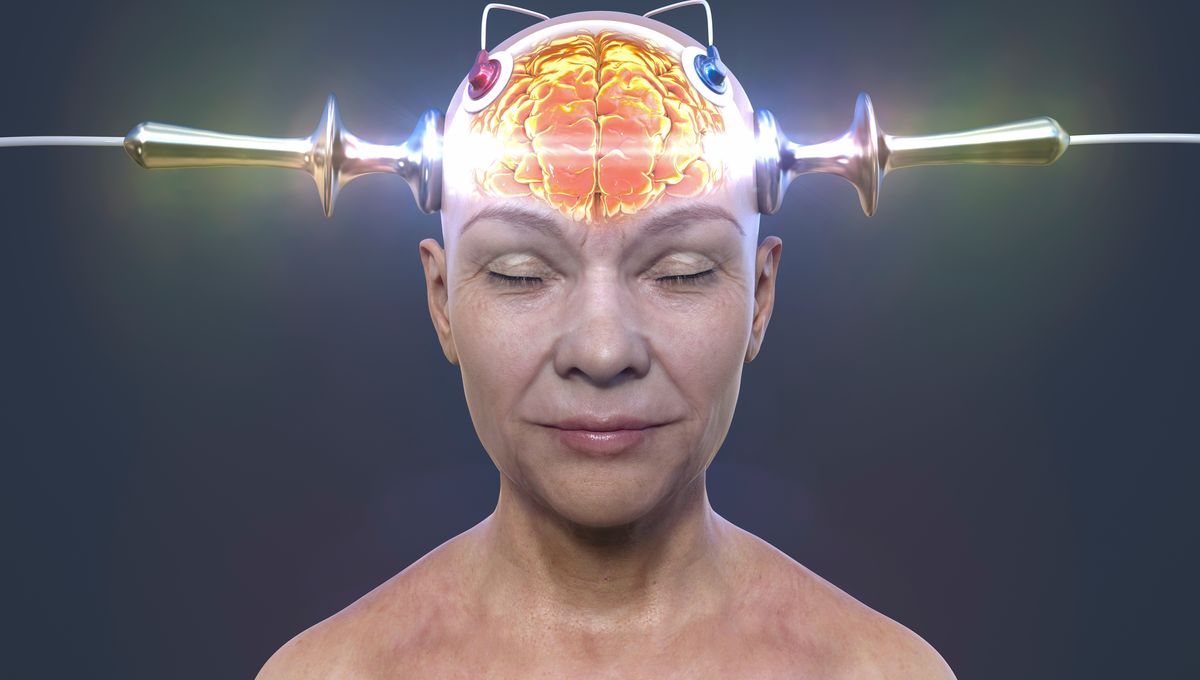
Despite its popularity among horror-movie mad scientists, electroconvulsive therapy (ECT) is actually a legitimate treatment for certain mental health disorders, and is effective for up to 80 percent of depressed patients who receive it. Strangely, however, researchers have until now been unable to explain how the procedure works, yet a pair of new studies has finally revealed what’s behind the psychological improvements seen in ECT patients.
The treatment involves the use of controlled electrical currents to trigger a short seizure in the brain, and has given rise to the greatly exaggerated silver-screen cliche of the evil doctor strapping his victims to a table before zapping them with blue bolts of electricity. First developed in the 1930s, the procedure has become highly stigmatized due to these misrepresentations, and is in fact much more discreet, targeted, and indeed beneficial than most people realize.
“A lot of people are surprised to learn that we still use electroconvulsive therapy, but the modern procedure uses highly controlled dosages of electricity and is done under anesthesia,” explained study author Sydney Smith in a statement. “It really doesn’t look like what you see in movies or television.”
In the first of two recent studies, the researchers explain that while it’s currently unclear how ECT produces its therapeutic effects, the technique has been associated with a “slowing” of brain activity that can last for days to weeks following treatment. Using electroencephalography (EEG) to record the electrical brain activity of nine people undergoing ECT for depression, the authors discovered that this slowing is associated with an increase in what’s known as aperiodic activity.
Unlike regularly repeating neural oscillations – generally referred to as brainwaves – aperiodic activity does not repeat in a reliable pattern and is often thought of as having little importance. “Aperiodic activity is like the brain’s background noise, and for years scientists treated it that way and didn’t pay much attention to it,” said Smith.
“However, we’re now seeing that this activity actually has an important role in the brain, and we think electroconvulsive therapy helps restore this function in people with depression.”
Analyzing the EEG readings, the researchers found that aperiodic activity tended to increase after ECT. This, in turn, led to enhanced inhibitory activity in the brain, effectively slowing everything down and bringing about clinical improvements in depression symptoms.
These findings were then replicated in a second study, which showed that both ECT and magnetic seizure therapy – which induces seizures using magnets instead of electricity – boost inhibition throughout the brain by triggering an increase in aperiodic activity.
These findings are particularly relevant when considered in light of the so-called cortical inhibition theory of depression, which states that the condition is underpinned by a lack of inhibitory activity in the brain. This hypothesis is backed up by studies indicating that individuals with depression may have an abnormally low number of inhibitory neurons (which are receptive to the inhibitory neurotransmitter GABA).
Summing up the results of these two studies, Smith explains that “something we see regularly in the EEG scans of people who receive electroconvulsive or magnetic seizure therapy is a slowing pattern in the brain’s electrical activity.”
“This pattern has gone unexplained for many years, but accounting for the inhibitory effects of aperiodic activity helps explain it.”
The studies are published in the journal Translational Psychiatry, here and here.
Source Link: Electroconvulsive Therapy Really Works For Depression, And Now We Know Why